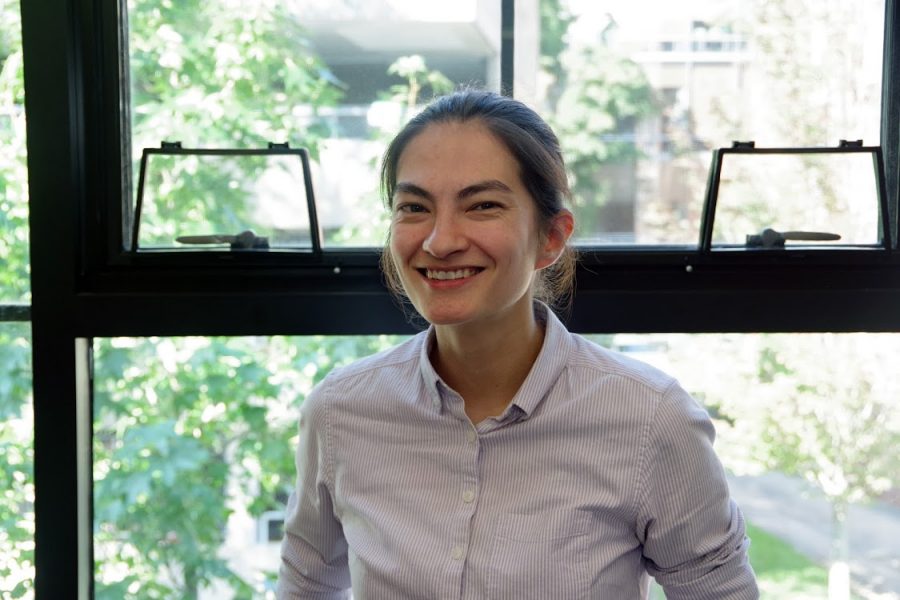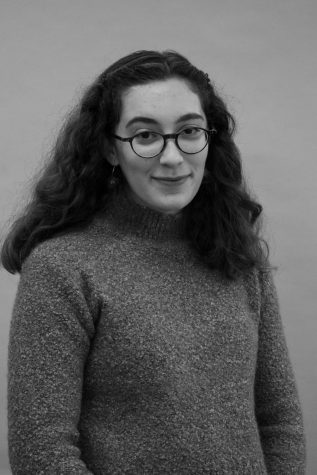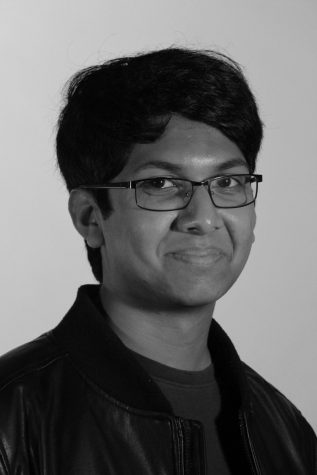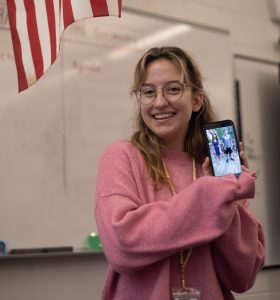New Teacher Spotlight: Dr. Eva Lam
Dr. Lam teaches AP World History and AP Comparative Government.
September 28, 2018
Dr. Lam teaches AP World History and AP Comparative Government. She is also a 2010 Rhodes Scholar, an international postgraduate scholarship for students to study at Oxford University.
Register Forum: Why did you want to be a teacher?
Dr. Eva Lam: I went to big public school in Milwaukee which was very diverse, and I think one of the things I started to figure out as I got to high school was that your odds of getting one of the really good teachers was way higher if you had other advantages in your life, which I did. … I wanted to be a teacher because it’s fun and I’m really nerdy and I get to be nerdy in front of people all day every day and get money for it, which is nice. But I also think there’s an important social purpose to teaching [because] teachers can do a lot of good if they are competent in the right place, and I wanted to be useful as well as have fun.
RF: Why did you choose to teach history?
EL: It was always my favorite subject. … I really like being able to make connections to the world we live in today. I really like talking politics—I was on the debate team in high school … and that was the most immediately relative thing to argument politics which is what I really like to do.
RF: If you could teach any class in the world, what would it be?
EL: Comparative Government is actually the class that I always wanted to teach, so I really lucked out getting that assigned to me. … It’s just so cool to not be stuck in American politics which is what American schools tend to do and it’s really interesting to learn beyond the stereotypes.
RF: Why did you decide to come to CRLS?
EL: I’ve been in Cambridge for close to ten years now. I came to college here, I left for a little bit and I was teaching at a charter school in Cambridge for the past five years, and I just always heard great things about CRLS. I knew a couple kids in college who had actually gone here and spoke really [highly] of the experience and who were also just really really well intellectually prepared. I was definitely very impressed. Any kid who can come to college and hit the ground running is pretty academically impressive.
RF: How has being a Rhodes Scholar impacted your life?
EL: I got super lucky. I think the Rhodes was just a tremendous opportunity. I don’t think anybody should get a really big head about it because there’s always a couple hundred people who are really qualified for that scholarship in the United States every year … and the best advice I got going into the interview process was that whether you get it or not partly depends on what you had for breakfast that day. … There’s an element of sheer luck from which I definitely benefited. … The experience was just amazing, I mean I got to spend three years in Oxford. … It’s a beautiful city. I had this amazing intellectual experience—I was hanging out with this community of people who had incredibly diverse backgrounds and academic interests and non-academic interests. We had absolutely the best dinner conversations of anywhere I’ve ever been and I got a doctoral degree for free which was also cool… So, I lucked out!
I did get … a lot of confused looks when I said I was going to go be a high school teacher, which I think says a lot about the way that Americans think about education, like, “You have this tremendous opportunity and all you are going to do with it is to go be a teacher?” which I think is exactly the wrong way to think about it.
RF: What do you think your spirit animal is and why?
EL: Oh, man… probably a cat in that I’m often cranky and I knock stuff off tables a lot.
RF: If you could go anywhere in the world where would you go and why?
EL: This is a profoundly unexciting answer but I really like Wisconsin. I grew up in Wisconsin, the people are super nice, everything is incredibly cheap, there [are] just some beautiful places to hang out outdoors, there’s great places to camp, my family is there, and the Packers are there.
RF: What advice do you have for students?
EL: I think when you’re 17, it’s hard to take perspective on how much of your life is still ahead of you, so I think the number one thing is that, if plans change, that’s fine. You’ll go to college, and you’ll change your major seven times and you’ll change your career plan twelve times. … It’s gonna feel like a big crisis every time, but it’s gonna be fine.
This piece also appears in our September 2018 print edition.











